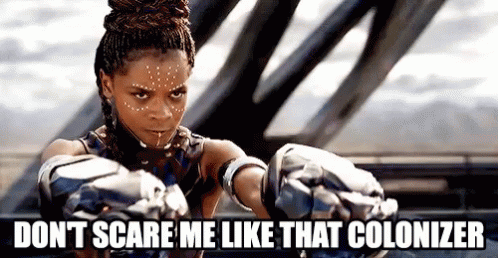ASA 114
Week 6
Stuart Hall’s “Cultural Identity and Diaspora” discusses the two ways in which cultural identity is: one that reflects the common histories of the people and the other that identifies the differences in how colonial displacement has affected the same groups of people. The author brings up their own experience in how different the same people can experience life when they say that, “[i]t positions Martiniquains and Jamaicans as both the same and different,” (Hall 227). This experience reflects Hall’s idea on how the overpowering colonizers have been able to shove the knowledge that they know and perceive to their colonized subjects, “the power to make us [the colonized] see and experience ourselves as ‘Other,’” (Hall 225). The traumatic past of colonized people causes severe displacement as they have issues trying to truly understand their own identity in their host country and in their home countries, wherever that may be, as Benedict Anderson seeks to help in Imagined Communities, by slowly piecing together displaced diasporas of people from all over the world and to have them realize that their displacement issues are not particular to them, no, but to everyone else in their same diasporic communities and by understanding each other’s past, they can build a strong community that supports one another through their shared history. I think that it is important for diasporic communities to have strong networks with each other because it allows for further understanding of one’s own people and how they all share the same histories even when in different countries. With it being black history month, having people of African descent to reconnect with their roots, even if for one month, allows for the issue of political and social identity to be fully recognized and found through media such as film, music, books, etc.,. Black history month also allows for people inside and outside of the community to realize the challenges that face the African American community and to focus on how to solve them. These heritage months are important as they help people to reconnect with their cultural identity and to understand their own histories and the challenges that face them.
Question: What are some ways that these colonially displaced communities can find their identities even without heritage months? How would these types of learning be implemented? Should there be history classes in school to teach kids more about European colonization and its impact on those populations and more?
Gif: https://media1.tenor.com/images/7bbbfb0777a372e91b0e16971eae71fc/tenor.gif?itemid=11171860
Additional Reading: https://medium.com/@belyseinamahoro/confessions-of-an-african-student-abroad-the-colonizer-in-me-2788fd0673e3

No comments:
Post a Comment